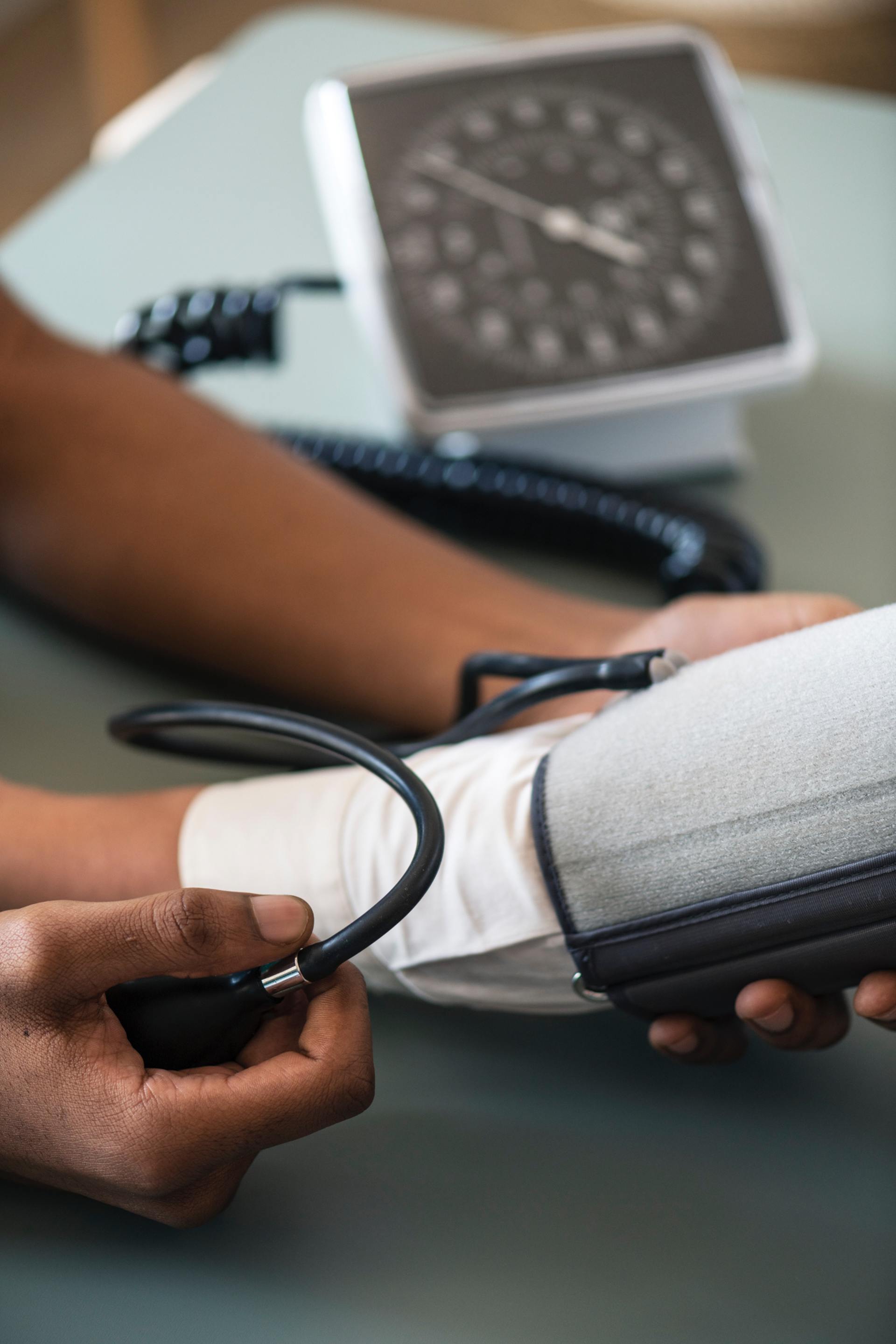Common Sense for Common People
News

By Emory Dunahoo Jr.
•
11 Feb, 2020
Monday, February 3, was Legislative Day 10 and marked the start of the fourth week of the 2020 legislative session. This week, my colleagues and I have been busy meeting in our committees, and the House convened on the House floor for three days, where we passed several important measures, including an adjournment resolution that set our calendar for the next few weeks of the legislative session. On Wednesday, the House unanimously adopted House Resolution 935, a bipartisan measure that would reauthorize the Georgia Commission on Freight and Logistics for the 2020 calendar year. The commission, which was first created in 2019, would continue its work to develop unique and specific solutions for trucking, rail and air cargo, including reducing the driving risks for truck drivers and other motorists, expanding dedicated lanes for moving freight and reducing traffic impacts in and out of the ports and around key metropolitan areas. By the end of the year, the commission would submit a comprehensive report detailing a legislative framework for funding and policy development ahead of the 2021 legislative session. HR 935 will now be considered by the Senate, and if it is adopted, the commission would continue its necessary work to identify ways to support the state’s freight and logistics industries and allow Georgia to maintain its competitive advantage in these industries. Over the last few years, the House has spearheaded legislation to develop the new Georgia State-wide Business Court, which launched in January 2020 and will begin taking cases in August 2020. These specialized courts were approved by Georgia voters and are dedicated to providing expedited resolution of cases for complex commercial lawsuits. This week, the House passed enabling legislation, House Bill 663, to allow judges of the recently created statewide court to become members of the Judicial Retirement System of Georgia (JRS) if they are employed full-time and are in good standing with the State Bar of Georgia. Instead of remaining as members of the state’s Employee Retirement System (ERS), these judges could receive service credit in JRS equal to the amount of service they earned while a member of ERS. The Georgia State-wide Business Court system is designed to enhance Georgia’s position as the number one state to do business, and these judges who serve in the specialized court will help ensure that we remain a business-friendly state. This week, the House also adopted House Resolution 326 in honor of Mr. Roger Dill, who worked for the Georgia Department of Transportation for 23 years. Mr. Dill contributed to a number of notable transportation projects in Tift County and across the state, including the construction of Interstate 75. To honor his many years of service, House Resolution 326 dedicates a newly-constructed Department of Transportation building in Tift County as the Roger C. Dill District Office. Mr. Dill has long been recognized by his community for the vital role that he has played in Tift County, and this resolution formally acknowledges Mr. Dill for his personal commitment to the betterment of Georgia and his contributions to the state’s transportation infrastructure. Finally, before we adjourned for the week, the House adopted Senate Resolution 712, which is a second adjournment resolution that determined our legislative calendar for the coming weeks. This adjournment resolution is unique in that it allows the General Assembly to remain in recess until February 18 so that we can better focus our time and energy on the Amended FY 2020 and Fiscal Year 2021 budgets. My colleagues and I will use this time to craft balanced budgets that invest wisely and move our state forward. The House and Senate will reconvene on Tuesday, February 18 for Legislative Day 13. Until then, the House will hold important budget hearings and devote our time at the Capitol to finalizing the state budgets. As always, I greatly appreciate any feedback I receive from my constituents, and I welcome you to contact my office with any questions or concerns about the legislative session before we adjourn Sine Die. As always, thank you for allowing me to serve as your District 30 State Representative. - Representative Emory Dunahoo Jr.

By Emory Dunahoo Jr.
•
10 Mar, 2019
We started the seventh week of the 2019 legislative session on Monday, February 25, 2019. We were in session all five days this week and passed over 40 bills and resolutions on the House floor. We are over halfway through this legislative session, and with “Cross Over Day” quickly approaching, this week was our busiest yet. On Monday, the House passed another bill to support and provide disaster relief to farmers in South Georgia who were impacted by Hurricane Michael. Hurricane Michael had a catastrophic impact on the citizens and the economy of southwest Georgia, and it has particularly devastated the agriculture industry. To assist in the recovery efforts, House Bill 105 would provide an income tax exemption for income received as payments from a disaster relief or assistance program if those payments are connected to Hurricane Michael and administered by the United States Department of Agriculture. Those affected by Hurricane Michael would not be taxed on this federal aid over the next three years under this bill to ensure citizens are given the relief and time to rebuild Georgia's agriculture industry. Through HB 105, the House remains committed to aiding southwest Georgia farmers as they continue to restore their lives and businesses. In response to the enactment of the federal farm bill this past December, which makes growing hemp in the United States legal again, my colleagues and I passed House Bill 213 in an effort to help Georgia’s farmers. The House Study Committee on Industrial Hemp Production spent last summer and fall analyzing nationwide initiatives that created successful hemp industries, and as a result, House members carefully crafted HB 213 to pilot this new agricultural industry in the state. This bipartisan legislation would allow for the cultivation and processing of hemp and hemp products in Georgia and would also authorize colleges and universities in the University System of Georgia to conduct research on hemp. Under HB 213, the state would allow hemp growers who meet certain criteria to obtain a license and would charge an annual licensing fee of $1,000. This legislation would also let the state issue up to 12 permits to produce hemp, and the Department of Agriculture may award additional permits based on the financial standing and hemp processing experience of applicants. These approved producers would also have to meet specific requirements to obtain permits and would pay an initial fee of $100,000 for a permit and $25,000 annually to renew the permit. The Department of Agriculture would oversee this program and would administer tests to ensure that the hemp grown in-state contains less than .30 percent THC. This exciting proposal would allow Georgia farmers to profit from hemp cultivation and production and compete with the 41 other states that have already created safe and effective avenues to grow and produce hemp. This week, we overwhelmingly passed another bipartisan bill that would provide greater access to mental health services for all Georgians. If signed into law, House Bill 26 would enter Georgia into the Psychology Interjurisdictional Compact (Psypact), which is an interstate compact to allow psychologists from other states participating in the compact to use telecommunication technology to practice in multiple states using one license. Under HB 26, an individual admitted to practice under this compact could practice telepsychology and/or temporary face-to-face psychology in Georgia after passing a background check. The face-to-face practice seeks to allow individuals moving into the state to temporarily practice for a period of 30 days while they go through Georgia’s licensing process. The proposed bill would also give Georgia’s State Board of Examiners of Psychologists the authority to participate in the Psypact and would create the "Psychology Interjurisdictional Compact Commission" to implement and administer the compact. This legislation would make Georgia a more military-friendly state by giving military spouses the ability to continue to practice psychology when moving to Georgia. HB 26 would also provide greater access to mental health services in rural areas and benefit Georgia schools that do not have fulltime psychologists on staff. HB 26 is an important piece of legislation that reflects the House’s dedication to mental health initiatives this legislative session. The House also passed two measures this week to protect Georgia children from situations that could hinder their success or jeopardize their safety. First, we passed House Bill 228 to raise the minimum age of marriage in Georgia to 17 years old and require any person who is 17 years old who wishes to be married to provide proof of emancipation by law. HB 228 also states that the older party to the marriage must be no more than four years older than the 17-year-old younger party, and both parties of the proposed marriage would have to complete six hours of professional premarital counseling. If the minor seeks emancipation to get married, the minor would have to provide information about the intended spouse, including copies of criminal records or protective orders, and a Georgia court would appoint an attorney to examine whether the intended marriage is in the minor's best interest or puts the minor at risk. If emancipation is granted, the two parties would have to wait at least 15 days before the court can issue a marriage license. This bipartisan measure would protect minors from abusive or exploitive relationships that could become sanctified through a marriage license and allows Georgia to join the growing movement to stop child marriage. Additionally, the House passed the Protecting Military Children Act, which seeks to protect our most vulnerable population from abuse and neglect. HB 64 mirrors similar legislation that has passed in eight other states, and the bill calls for child welfare agencies, such as the Department of Family and Child Services, to notify a military installation’s family advocacy program when there are allegations of child abuse or neglect involving an active-duty military parent or guardian. HB 64 would help the military track these cases across state lines and would create a safeguard for military children. My colleagues and I also passed legislation this week to strengthen Georgia’s laws for those convicted of pimping or pandering. Currently, Georgia does not have increasing penalties for repeat offenders who are convicted of pimping or pandering, and the state considers this crime a misdemeanor, regardless of how many times it is committed. To deter offenders from taking advantage of the minimal penalties that are currently in place, the House overwhelmingly passed House Bill 281. The proposed legislation would make the first pimping or pandering offense a misdemeanor of a high and aggravated nature and increases the initial jail time from 24 hours to 72 hours. The second offense, and all subsequent offenses, would be considered a felony and would allow sentencing to increase to a maximum of 10 years in prison. This measure would raise the penalties to meet the nature of these crimes in order to protect our citizens and prevent these atrocious crimes in our state. Over the past two years, the House has made it a priority to examine the plights of rural Georgia and enact legislation to promote economic growth in these areas of our state. This week, the House adopted House Resolution 214 this week to reauthorize the House Rural Development Council (RDC) for two more years so that we can continue to address these issues. Throughout the next two years, the RDC will travel to different rural areas in the state to consult with local officials and policy experts and develop measures that will confront the challenges that hinder rural economies. Since the RDC’s inception in 2017, the House has introduced and passed a number of bills to aid our rural communities, but there is more work to be done. Rural Georgia faces unique challenges, which includes loss of population, inadequate access to quality health care, poor infrastructure, diminished quality of public education and a scarcity of employment opportunities. I am pleased that the House has adopted this resolution and reaffirmed our commitment to rural Georgia. Each legislative session, the General Assembly is constitutionally required to pass a balanced budget for the next fiscal year, and on Thursday, the House fulfilled that obligation by passing House Bill 31, the Fiscal Year 2020 budget. The FY 2020 budget is set at $27.5 billion, an increase of $1.05 billion, or 3.95 percent, over the previous year’s budget. The House version of the budget highlights women’s and children’s issues including maternal mortality; education, including funding the largest pay raise in the state’s history for teachers and certified personnel; and additional funding for our most vulnerable Georgians, including the elderly and foster children. I will highlight some of these items that are included in the House’s version of the FY 2020 budget. The FY 2020 budget promotes economic development across our state through several appropriations that will support our growing transit systems and revitalize rural areas. HB 31 focuses on economic development in our rural communities by providing $300,000 for the creation of the Blight Removal and Code Enforcement (BRACE) program in the Department of Community Affairs. This program, which was a recommendation of the House Rural Development Council, will provide grants to communities with populations of 2,500 or less to initiate a free, neighborhood-level cleanup for dilapidated areas. Supporting the state’s transportation systems and infrastructure is another key element to bolster economic development throughout Georgia. For this reason, the FY 2020 budget recognizes an increase of $38.6 million in new revenue for transportation, an increase of more than seven percent over the current year’s budget. The innovative Atlanta-Region Transit Link (ATL) Authority is included in this appropriation and would receive $2.48 million to establish the initial budget to plan and govern transit projects in the 13-county Atlanta region. The House’s focus on economic development stretches across various industries and issues, and I look forward to seeing the strides Georgia will make with the help of this funding. The House remains devoted to improving educational opportunities statewide, and this commitment to K-12 and higher education is indicated in the House budget. The FY 2020 budget includes a historic pay raise of $2,775 for each certified teacher and school personnel, including counselors, social workers, psychologists, special education specialists, speech and language pathologists, media specialists and technology specialists, in our public education system, which increases the base salary pay for teachers by 8.1 percent. The House budget also appropriates $483 million for the Quality Basic Education program (QBE) and $121.9 million to the Department of Education for enrollment growth and training. Within the Student Finance Commission, the budget provides the important HOPE and Zell Miller scholarships with $74.7 million for 22,000 additional awards. This funding also increases the award amount by three percent to match the rising costs of college tuition and keep in-state colleges affordable. The House budget also ensures the longevity of dual enrollment programs by saving $4.1 million through limiting these programs to hardworking 11th and 12th graders during fall and spring semesters only. To create safer school environments for all Georgia students, and based on the recommendations of the House School Security Study Committee, the FY 2020 budget appropriates $174,000 within the Georgia Emergency Management and Homeland Security Agency (GEMA) to hire two school safety threat assessment trainers to work with local school systems to develop threat assessment plans. Lastly, 4-H centers throughout the state would receive $150,000 in bonds for security improvements and $747,600 to contract with local law enforcement to provide security when students are present. The House also emphasized funding for health care in HB 31. In order to provide better access to quality health care in Georgia, the FY 2020 budget includes $78.4 million in the Department of Community Health for Medicaid growth, as well as an additional $68.3 million to replace federal funds in the Medicaid programs due to a reduction in the Federal Medicaid Assistance Percentage. HB 31 also appropriates $5.9 million for the Medicaid budget for gene therapy drug coverage, $6.8 million for Medicare Part B premiums and $3.2 million to include seven additional long-term acute care hospitals. Furthermore, the budget allocates $500,000 for a Center of Excellence on Maternal Mortality to advance maternal health and more than $1 million for additional maternal health support to screen, refer and treat maternal depression and related behavioral disorders in rural and underserved areas. Georgia has a high rate of maternal mortality, and this appropriation seeks to combat this issue in our state. The House FY 2020 budget also includes funding to tackle the opioid epidemic, which is devastating communities and burdening Georgia’s workforce. The House is fighting back by including $4.9 million for the Department of Behavioral Health and Developmental Disabilities to invest further in residential treatment of addictive diseases, which would add six new facilities across the regions in Georgia. The House recognizes an additional $29 million in behavioral health services to increase bed capacity and outpatient services, as well as annualize the cost of crisis centers that serve our communities. HB 31 adds funding to a variety of programs and projects that assist some of the most vulnerable Georgians. HB 31 includes $1.4 million for home-delivered meals for an additional 665 Georgians and $1.3 million to fund 17 additional adult protective services caseworkers, bringing the total to 172. With more than 13,000 children in the state’s foster care program, we must provide adequate resources for these children. The budget includes $9.8 million for Out of Home Care and $940,000 to implement a pilot program recommended by Governor Brian Kemp that would follow-up on closed foster care cases to continue to look after these children. Finally, the House’s version of the budget allocates $563,380 to the Georgia Bureau of Investigation to help solve the crime lab backlog, $780,690 for six positions for the GBI unit at the Cyber Crime Center and $500,000 to implement a GBI Gang Task Force to help local governments prosecute gang activity. HB 31 also includes an addition of $2.1 million to expand the state’s highly successful accountability courts within the Criminal Justice Coordinating Council. We will return to the Gold Dome on Monday, March 4, for week eight of the 2019 legislative session.

By Emory Dunahoo Jr.
•
10 Mar, 2019
The Georgia House of Representatives resumed our work on Tuesday, February 19 to begin the sixth week of the 2019 legislative session. We started this week by convening for a joint session with our colleagues in the Senate to hear the Supreme Court of Georgia’s Chief Justice Harold D. Melton deliver the annual State of the Judiciary address. In addition to hearing the State of Judiciary address this week, my colleagues and I met in the House Chamber for four legislative days, as well as in our committees, to consider and pass several important bills. The recently appointed Chief Justice, Harold D. Melton delivered his first State of the Judiciary address before a joint session on Tuesday. This annual address recounts the accomplishments of Georgia’s judicial branch and the challenges it will face in the year ahead. Due to the great relationships built between the judiciary branch, the state legislature and the executive branch, Chief Justice Melton reported that Georgia’s judiciary branch stands sturdy, stable and strong and is poised to meet the inevitable changes that lie ahead. In his remarks, Chief Justice Melton touted the success of our state’s innovative criminal justice reform initiatives, led by former Governor Nathan Deal. Through these efforts, Georgia has reduced recidivism rates, saved taxpayer dollars spent on Georgia’s high prison populations and strengthened communities by giving non-violent offenders the chance to become law-abiding and productive citizens. One initiative that has made a critical impact in our judicial system is our accountability courts, or “specialty” courts, which provide effective alternatives to sentencing for nonviolent offenders. These specialty courts have been highly successful in combatting recidivism because judges, social workers and volunteers take the time to understand the struggles and the individual backgrounds behind the people they serve. Chief Justice Melton went on to say that although Georgia continues to set a national example with our criminal justice reform measures, our communities can have even more success by addressing the root cause of criminal behavior before it reaches the court system. Chief Justice Melton challenged the House and Senate to consider initiatives that engage high risk individuals earlier in the timeline. An extraordinary number of Georgia children are placed in foster care, and the challenges that these children face often put them at higher risk of getting into trouble, dropping out of school, having unplanned teenage pregnancies and ultimately encountering the judicial system as adults. Chief Justice Melton reiterated the importance of keeping children with their families and out of foster care with the help of the Kinship Care program. Kinship Care works to give guardians like grandparents, relatives and even family friends who serve as guardians the legal authority they need to make medical, financial and educational decisions for the children. Chief Justice Melton encouraged us to support these efforts and use these tools to intervene and steer individuals on a better path to reduce the number of court cases. Chief Justice Melton went on to highlight the profound changes courts have seen with the use of technology. New technology can help citizens without legal representation and those with language barriers navigate complex court procedures. To simplify this process and speed it up, courts across Georgia already take advantage of chatbots and online forms to improve access and guide self-represented litigants through the process of filling out civil pleadings. This technology can also handle basic questions, look up citation information, utilize a text reminder service and expedite judges’ responses to emergency requests from the victims of domestic violence to give victims assurance of safety and peace of mind. Chief Justice Melton thanked the General Assembly for its support, which has provided opportunities for electronic filing and access to court documents from anywhere in the state and an electronic data system that shares information about criminal cases at every stage. The Chief Justice noted that the courts have made tremendous strides with technology, which will continue to transform our courts in the coming years. After the joint session dissolved on Tuesday, the House unanimously passed House Bill 158, legislation that would give HIV-positive individuals on Medicaid access to the most effective antiretroviral medications on the market. This bipartisan legislation would require that all individuals suffering from HIV/AIDS, whether in the state drug program or on Medicaid, receive the same antiretroviral drugs, including single tablet regimens. The cost to treat an individual with HIV/AIDS under the state drug program is $338,000, whereas, the cost per individual without this program is $1.7 million. Our state has an extremely high number of new HIV diagnoses per year, and the proposed legislation seeks to ensure the health and well-being of all Georgians while combatting the spread of HIV/AIDS in our state. This week, we also passed House Bill 130 and House Bill 59 to expand educational opportunities for our K-12 students across our state. In 2010, the Georgia General Assembly established the Georgia Foundation for Public Education (GFPE) to promote and implement educational initiatives and programs throughout the state. Under HB 130, the GFPE would be authorized to qualify as a 501(c)(3) nonprofit organization. As a 501(c)(3) nonprofit organization, the foundation would be able to solicit and accept more funding to carry out its purpose of supporting educational excellence in public schools and at the Georgia Academy for the Blind, Georgia School for the Deaf and Atlanta Area School for the Deaf. Additionally, the House passed HB 59 to ensure that military families that move to Georgia have the same access to public education as Georgia residents. HB 59 would allow parents or guardians on active duty in the military to pre-enroll a student in a local school district when they receive official military orders to transfer to Georgia, instead of requiring the family to establish residency first. This legislation would expedite the enrollment process for these students so that they can continue to learn without interruption. Both of these bills will help foster educational excellence and ensure that Georgia students achieve the best educational outcomes possible. My colleagues and I also passed House Bill 186 this week to continue in our efforts to provide quality health care to all Georgians. This bill ensures that the proceeds from the sale or lease of a hospital property are put into an irrevocable trust fund solely for the purpose of providing indigent care in our state. After selling or leasing hospital properties, hospital authorities in Georgia may have significant assets available, but, there is not a purposeful avenue for a hospital authority to use these funds to give back to the local community. Currently, proceeds over $100,000 from a sale or lease are placed in a trust fund and used for hospital care for indigents, but HB 186 amends current Georgia law so that the interest on these funds can be used for health care purposes for indigents instead of for hospital only use. This change would allow local authorities to use the funds generated by the trust fund for a wide variety of healthcare purposes for indigents, including clinics and preventative measures. This important legislation would be economically efficient, provide better health care for indigent patients and ensure that citizens throughout Georgia can receive desired health care within their communities. On Thursday, February 21, the House adopted a resolution that would seize the potential of our coastal ports and expand our growing economy. Georgia is fortunate to have a range of deep water ports and transportation systems that are utilized by businesses across the nation. Our ports and freight industries provide 439,000 jobs a year, generate $25 billion in personal income and $2.9 billion annually in state and local tax revenues, and 10 percent of all exports in the country come through our ports. While these ports, rail systems and highways have great potential, the Georgia General Assembly must be proactive in implementing policies that will aide these industries as they grow. House Resolution 37 establishes the Georgia Commission on Freight and Logistics, which would be comprised of members of the House and Senate, along with various area experts from the Georgia Municipal Association, Association County Commissioners of Georgia, Metro Atlanta Chamber of Commerce and the Georgia Ports Authority. The joint commission would spend one year analyzing, determining and recommending comprehensive public policy development and funding for the 2020 legislative session that would support our freight and logistics industries and keep our state economically competitive. The current and future economic health of Georgia relies on a thriving and productive freight industry, and through the work of the Georgia Commission on Freight and Logistics, Georgia will remain one of the top states to do business.

By Emory Dunahoo Jr.
•
10 Mar, 2019
Week eight of the 2019 legislative session began on Monday, March 4, and it was certainly our busiest week yet. This week, the Georgia General Assembly reached Legislative Day 28, also known as “Crossover Day.” Crossover Day is a crucial deadline for the House and Senate as this is the last day for bills to pass out of the legislative chamber from which they originated in order to remain eligible for consideration for this session. As a result, Crossover Day is typically one of the longest days of the session, and my colleagues and I worked into the night to pass meaningful and significant House bills to send to our Senate counterparts for their consideration. This week, the House remained committed to helping suffering Georgians with the passage of a bill that would provide a legal pathway to manufacture and dispense low THC oil in our state. House Bill 324, or the “Georgia’s Hope Act,” would allow for the cultivation, manufacturing and dispensing of low THC oil with a lawful valid license issued by the Low THC Oil License Oversight Board to allow registered patients to obtain low THC oil in Georgia. As a result of previous legislation that was enacted in 2015, patients with certain medical conditions, such as terminal cancer, epilepsy, Crohn’s disease, Parkinson’s disease, severe autism and others, can register with the Department of Public Health’s (DPH) THC Oil Patient Registry to legally possess up to 20 fluid ounces of medical cannabis oil that contains up to five percent THC. While we have decriminalized the possession of this oil, these patients cannot legally purchase this oil in Georgia, and therefore, thousands of registered Georgians must still break the law to purchase low THC oil from other states. To solve this issue, this bill would authorize the DPH to issue two classes of licenses to produce, grow and manufacture low THC oil in Georgia. The DPH would also issue separate retail licenses for qualified Georgia applicants by January 1, 2020. This legislation would create a sophisticated seed-to-sale tracking system, and it would require facility inspections and sample testing of medical cannabis oil products. This legislation would help the more than 8,000 registered Georgians who suffer from serious medical conditions by establishing a secure, regulated and legal way to obtain this vital treatment. The House passed important bipartisan legislation this week that would create a hate crime statute in Georgia. House Bill 426 would increase the penalties for anyone convicted of a crime that was committed because of an offender's belief or perception regarding the race, color, religion, national origin, sexual orientation, gender, mental disability or physical disability of a person or group. Under this bill, a person convicted of a misdemeanor hate crime would be sentenced to three to 12 months of jail time and face a fine up to $5,000. Additionally, individuals convicted of hate crimes that are of a high and aggravated nature would face sentencing of six to 12 months of jail time, along with a $5,000 fine, and offenders of a felony hate crime would face a minimum of two years in prison. Georgia is one of only five states that does not have a law to protect its citizens from hate crimes, and this bill would bring our state in line with the 45 other states that have enacted similar legislation. My colleagues and I approved a measure this week to eradicate human trafficking and help victims of this grievous crime. This week, we unanimously passed the Anti-Human Trafficking Protective Response Act, House Bill 234, which would provide immense treatment for human trafficking victims through a streamlined process involving the Division of Family and Children Services (DFCS) and law enforcement. This bill would authorize DFCS to provide immediate emergency care and supervision for a child human trafficking victim without a court order or the consent of the parents or legal guardian. HB 234 would also direct DFCS and law enforcement to take the child to an available victim services organization, which is certified by the Criminal Justice Coordinating Council, to provide comprehensive trauma-informed services. The bill would protect minors by prohibiting victims who are under 18 years old from being prosecuted for prostitution. In addition, HB 234 would give local authorities the ability to seek civil penalties against the owner or operator of any building that has benefitted from any human trafficking activity. Local authorities could seek these civil penalties after the owner has received three or more separate sexually-related charges or indictments have occurred on the premises within a 12-month period, and the bill would permit property owners or operators to aid law enforcement in the investigation of criminal sexual-related conduct. This legislation would strengthen the state’s anti-human trafficking laws, while providing critical resources and care for victims of human trafficking. Another piece of legislation that passed this week was House Bill 79, which would safeguard the rights of legally blind Georgians and their children. HB 79 would prevent courts, the Department of Human Services and child-placing agencies from discriminating or denying child placement, custody, visitation, guardianship or adoption to an individual because that individual is legally blind. If a government agency is concerned that a parent’s blindness will have a detrimental impact on a child, that agency would need to prove by clear and convincing evidence that the parent's or prospective parent's blindness is endangering or will likely endanger the health, safety or welfare of the child. Parents would then have the opportunity to demonstrate how the implementation of supportive parenting services, such as nonvisual parenting techniques or alternative methods, could alleviate these concerns. This bill passed the House unanimously and with bipartisan support and would protect the more than 202,000 blind Georgians from unfair societal biases that deny these families their basic right to stay together. The House took steps this week towards implementing the 2019 House Transit Proposal to streamline state government agencies that oversee Georgia’s transit, address opportunities for local and regional input and encourage innovation and private sector investments. At the recommendations of the House Commission on Transit Governance and Funding, House Bill 511 would create the Department of Mobility and Innovation (GMobile) in order to govern, coordinate, consolidate and rebuild the state’s complex transit governance structure that currently spreads across six state-level agencies and authorities, while promoting economic development. The proposed bill would also designate Mobility Zones to deliver a more consistent level of service across all of Georgia’s regions and to enable participation and buy-in by local leaders. These Mobility Zones would be designed around regional economic hubs and surrounding rural areas, and each Mobility Zone would develop a regional transit plan that defines and identifies the specific transit needs of its respective area. As a result, this bill would allow Georgians to fully embrace public transportation across the state for the first time by creating new initiatives and greater transit funding that could further enhance the workforce in areas that currently have little to no public transit. HB 511 would establish a fee on ride-share services to be used for transit and transit projects, as well as a pilot program for incentives to employers who provide transit benefits to Georgians entering the workforce. The bill’s funding policy would include transit SPLOST at the county level and a state sales tax replacement through a $.50 fee per trip using taxi, limousines and ride-hailing companies and a $.25 fee for pooled rides, which would generate an estimated $30 million to $60 million annually for transportation. The bill would provide transit advocates with something they have long pursued: a committed source of state funding for public transportation. Our state spends nearly $14.5 million annually on transit, and Georgia ranks 37th among the states in transit spending per capita and 45th in spending per trip. These additional, dedicated funds would provide an increase in state transit spending for Georgia to invest in transportation improvements and innovation. Overall, bundling transit governance and funding will allow our state to leverage our transit systems to keep Georgia economically competitive and to support our workforce development initiatives. House Bill 224, a recommendation of the House Rural Development Council, passed this week to amend Georgia’s Investment Tax Credit, Job Tax Credit and Quality Jobs Tax Credit to assist and incentivize employers to bring dependable jobs to rural areas. The Quality Jobs Tax Credit was designed to incentivize better paying jobs in rural areas by providing a credit for positions that pay 110 percent of the average lowest wage when at least 50 jobs are created. Because creating 50 jobs in rural areas can be difficult, this Quality Jobs Tax Credit threshold must be redefined by tier to recognize that disparity, which is what HB 224 seeks to accomplish. This bill would create an incentive for employers that are investing in better paying jobs in rural areas of the state by raising the job creation threshold for the Quality Jobs Tax Credit and revising the wage required to earn job tax credits. Employers who relocate or expand in these locations would receive an additional credit of $500 for each qualified new job created in a Tier One or Tier Two county with a population of less than 50,000 and a poverty rate greater than 10 percent. The bill would adjust the statute to set the threshold on the minimum number of created jobs to qualify for the credit in Tier One and Two counties to five and ten, respectively. The new jobs would have to be created in certain counties designated by the commissioner of the Department of Community Affairs and pay at least 70 or 90 percent, based on tier, of the average wage earned in the county with the lowest average wage earned in the state. HB 224 would also increase the minimum investment for Georgia’s Investment Tax Credit from $50,000 to $100,000 for businesses that retain a certain number of jobs and invest in property with certain property values. Unused credits claimed prior to January 1, 2019 would be treated the same as new credits and would be allowed to be used against withholdings if employers in Tier One and Tier Two counties maintain at least 100 jobs in rural counties and purchase or acquire at least $5,000,000 or $10,000,000 of qualified investment property in rural counties. This legislation would not only encourage quality job creation, but it would also enrich the lives of citizens who live in our valuable rural Georgia communities. Finally, the House passed House Bill 446, which would refine income tax credits for timber producers who suffered losses from Hurricane Michael. After Hurricane Michael devastated the timber industry in southwest Georgia, the House passed House Bill 4EX, or the Timber Tax Bill, during the 2018 special legislative session. The Timber Tax Bill allows timberland owners to apply for an income tax credit worth 100 percent of the timberland losses occurring between October 8 and December 31, 2018. The income tax credit has a cap of $200 million overall and $400 per acre damaged. Subsequently, the House passed House Bill 446 this week to ensure that the individuals who incurred timber loss are the actual recipients of this important tax refund. The tax credit would still be transferrable, but the transferees would not be able to receive a 100 percent tax refund from the credit. Georgia’s timber industry suffered a loss of more than 2.4 million acres of timberland that was valued at over $762 million after Hurricane Michael, and this bill would help timber producers to offset these losses. Now that we have completed Crossover Day, all bills passed by the House must “cross over” to the Senate for consideration and vice versa. My colleagues and I will spend the remainder of the session meeting in committees and on the House floor to consider Senate bills. In the remaining days of the legislative session, I hope you will reach out to me with any questions or comment you may have about bills that may be up for consideration during these final weeks. You can reach me at my capitol office at 404-656-____. Thank you for allowing me to serve as you!!!

By Emory Dunahoo Jr.
•
18 Feb, 2019
My colleagues and I returned to the Gold Dome on Monday, February 11 for the fifth week of the 2019 legislative session. This week, the House convened on the House floor for a five-day legislative work week to continue to pass meaningful legislation for the good of every Georgian. We are now over one-fourth of the way through this legislative session, but we still have a great deal of work ahead of us. The House kicked off the week on Monday with the unanimous passage of House Bill 23 to expand internet access in rural Georgia. HB 23 is a product of the House Rural Development Council’s recommendations and would allow electric membership corporations (EMCs) and their affiliates to provide broadband services. HB 23 would prohibit cross-subsidization between an EMC’s broadband service and its electric or natural gas services, and it would also require that yearly audits be conducted to ensure that cross-subsidization does not take place. Lastly, the bill would prohibit EMCs from disconnecting broadband service if a customer fails to pay their electric or gas bills or vice versa. Subsequently, if HB 23 is signed into law, EMCs could apply for federal grants and loans through the USDA’s Rural eConnectivity Pilot Program (ReConnect Program), which a total of $600 million to aid improvement efforts for access to quality broadband services. Broadband is essential to almost every factor of economic development, and this legislation is a tremendous step in the right direction to help spur economic development in rural Georgia. In addition to passing legislation to improve broadband access in our rural communities, the House also passed a bill this week that would provide a pathway for deployment of small cell and 5G technology in public rights-of-way in Georgia. Over the past seven months, the House has worked with advocates, area experts and local authorities to craft a bill that would support the growing consumer-driven demand for high-speed wireless access while also preserving the ability of our local governments to protect historic districts and community aesthetics. Due to the overwhelming concentration of cellular data in our urban areas, House Bill 184, or the Streamlining Wireless Facilities and Antennas Act, would allow wireless service providers to install “stealthy” small-cell wireless towers throughout cities to offer greater wireless coverage. Starting in urban areas, this groundbreaking technology would eventually deploy 5G streaming services to all of Georgia using small boxes that are attached to utility poles in public areas, providing coverage up to a 1,000 feet in any direction of the poles. HB 184 would create a streamlined permitting process for small cell technology, establish application and attachment fees and define the rules of installation, repairs or improvements to the towers that will house this cutting-edge technology. This legislation would allow our state to move forward in deploying small cell wireless technology on a larger scale to further enhance economic opportunities across our state. Also this week, my colleagues and I overwhelmingly passed House Bill 62, or "Margie's Law," to assist in the early detection and treatment of breast cancer. This bipartisan measure passed by a vote of 166-1 and would require mammography examiners to notify patients when dense breast tissue is found. The bill also encourages women to speak with their health care provider about whether other supplemental tests in addition to a mammogram may be appropriate, based on their individual risk. While dense breast tissue is common and not always abnormal, it can make it more difficult to detect cancer through a mammogram and can increase the risk for breast cancer. Findings show that dense breast tissue is detected during annual exams in at least 40 percent of woman over the age of 40. If signed into law, Georgia would join 30 other states that have passed similar legislation to allow women to become active participants in this area of their health and help save lives from breast cancer. The House took up another very important measure this week to clarify existing law regarding when drivers can or cannot pass stopped school buses. Senate Bill 25 passed unanimously and clarifies ambiguous language that was enacted as a result of House 978 that passed last year that allowed drivers to pass a stopped school bus when traveling in the opposite direction when a turn lane is present. This caused confusion on the roadways and created safety issues for our school children. SB 25 reduces this risk and protects our school bus riders by making it clear that drivers can only pass a stopped school bus on the other side of the road when the roadways are divided by a grass median, unpaved area or physical barrier. Governor Kemp recognized that swift action was needed to resolve this issue and signed SB 25 into law on Friday, February 15, and the bill went into immediate effect to protect the lives of our children. Over the last two years, the House has supported Georgia’s brave military service members and our veterans by passing 23 military-friendly bills. To build upon these efforts, we passed House Bill 25 this week to provide financial relief for active duty members of the U.S. military, Georgia National Guard or Georgia Air National Guard. This bipartisan legislation would allow over 100,000 active service members in Georgia to terminate contractual obligations with a provider of subscription services like television, video, and audio programming services; internet access services; or health spa or gym services. To qualify, service members must be on active duty, receive orders of deployment to a location that does not support these same exact services and give a 30 day notice. Inspired by similar legislation implemented in 18 other states, the House has worked alongside federal officials to craft legislation that would alleviate some of the financial burdens for those who protect our great state and country. The House completed the week on Friday, February 15 by passing House Bill 63 to allow health care providers to request exceptions to step therapy protocols to provide proper medication to patients when it is medically necessary. Currently, insurance companies in Georgia often use step therapy, which is a process that requires a patient to try and fail one or more medications preferred by their insurer before receiving coverage for the medication that their doctor originally prescribed. This process restricts a patient’s access to quality care and prolongs ineffective treatments by preventing an individual from starting the treatment that their doctor thinks is best, and physicians cannot override this process. This bill would allow physicians to submit a step therapy exemption or appeal if the required prescription drug will cause an adverse reaction or physical or mental harm to the patient, is expected to be ineffective, the patient has tried the required prescription drug or the patient's condition is stable on a prescription drug previously selected by his or her practitioner. HB 63 also ensures that patients would not have to begin a step therapy process for a medication after switching insurance providers. This bipartisan legislation would help patients who are suffering from serious illnesses by expediting this process and increasing access to critical treatment options. The House will return to Capitol Hill for Legislative Day 17 on Tuesday, February 19, where we will convene for a joint session to hear the State of the Judiciary address. As always, I welcome you to contact my office with questions or concerns as we make our way through the legislative session. My Capitol office number is 770-534-0314, and my email address is emory.dunahoo@house.ga.gov. Please contact me anytime. As always, I am humbled to serve as your state representative.

By Emory Dunahoo Jr.
•
18 Feb, 2019
The swearing in of our new governor, Brian Kemp, was an exciting event to attend and experience to get the session started this year. Republicans have high hopes for Gov. Kemp as he begins his four year term steering our state. I have the upmost confidence in Gov. Kemp; Lt Gov. Geoff Duncan, and Sec of State Brad Raffensperger. I am excited to see where these gentlemen will lead our state. The budget is the big agenda for the first couple of weeks as we begin the arduous process of ensuring that our state revenue is spent wiselyto meet the needs of all Georgians. Highlights include pay raises for teachers, bus safety, addressing the gang situation in GA, improving healthcare for all Georgians, Trauma care, Economic development, continuation of the HOPE grant and addressing needs of the DOT. Bills are beginning to roll in and one of the first bills passed was a school bus safety bill involving the loading/unloading of students that passed quickly both houses. Another piece of legislation honored our most recent Gov. Nathan Deal by naming a new Judicial complex after him. The budget past 166-8. An additional amount of funding for disaster relief for South Georgia was passed due to Hurricane Michael; several state educational needs were funded as well. The pace will begin to quicken now and things begin to roll in very quickly. I will begin to post detailed weekly descriptions after this post that explain happenings in the chamber. I have been asked to carry several pieces of legislation and am weighing those out with their effectiveness and the amount of time I can devote to seeing them passed properly through the House and the Senate. One bill is a savings bill from state banks to encourage saving among all Georgians to have a rainy day fund. This only makes common sense and has my full support. Another pro-life bill is being offered up that I simply cannot refuse due to my own personal convictions and the sanctity of human life. In horror of some of the legislation being passed in our country, I must fight for the unborn as they cannot fight for themselves. Other bills being considered are being given careful thought at this time.
What matters for Georgia
Stay connected with what makes Georgia a GREAT State!
Slide Title
Write your caption here
ButtonSlide Title
Write your caption here
Button
Slide Title
Write your caption here
Button
Why should we pass a FairTax bill?
Simplify Taxes
Our country is awake and no longer blind to the burden brought upon us by the current tax system – an almost incomprehensible document with over 73,000 pages of loopholes and traps.
Economic Growth
Georgia’s businesses drive our economy by providing the jobs, goods, and services we need. That gives you, the business owner, a very powerful voice.
Everyone is Equal
Hard working Americans, tax dodgers, drug dealers, tourists, and illegal aliens all pay the FairTax, so paying taxes is no longer left up to the American worker alone.
Nonpartisan
It is not the brainchild of Republicans, Democrats, Libertarians, or any other political party. The FairTax was born of American innovation and the belief that there is a better way to fund the federal government.









